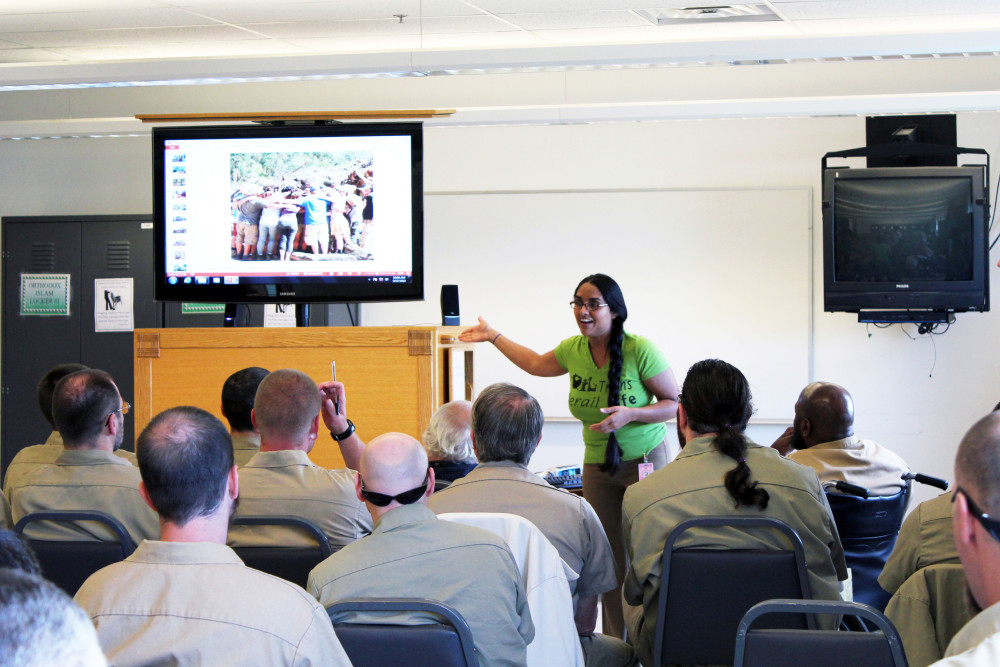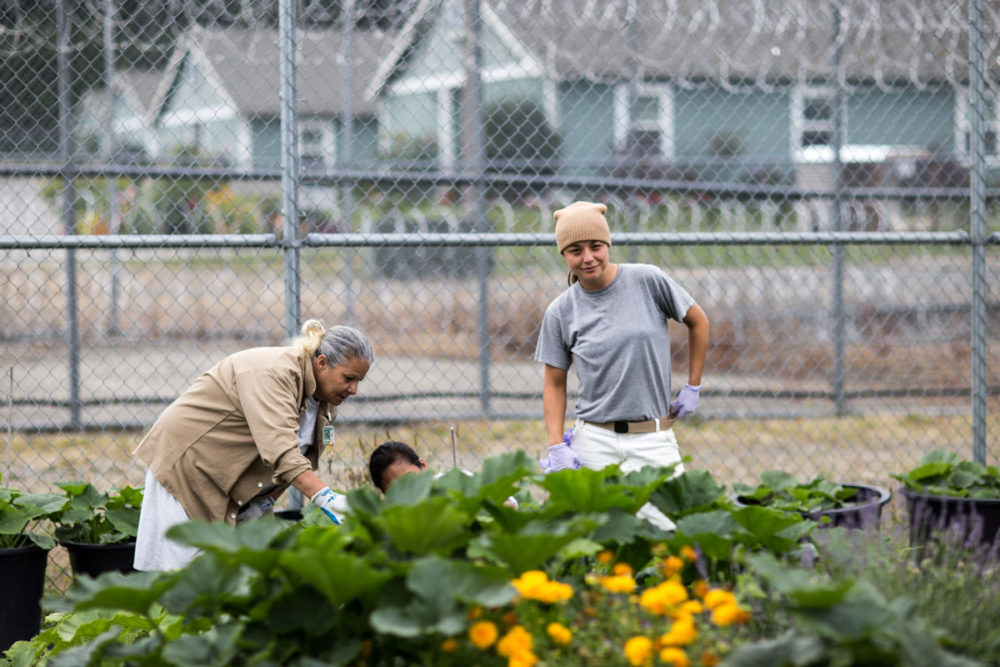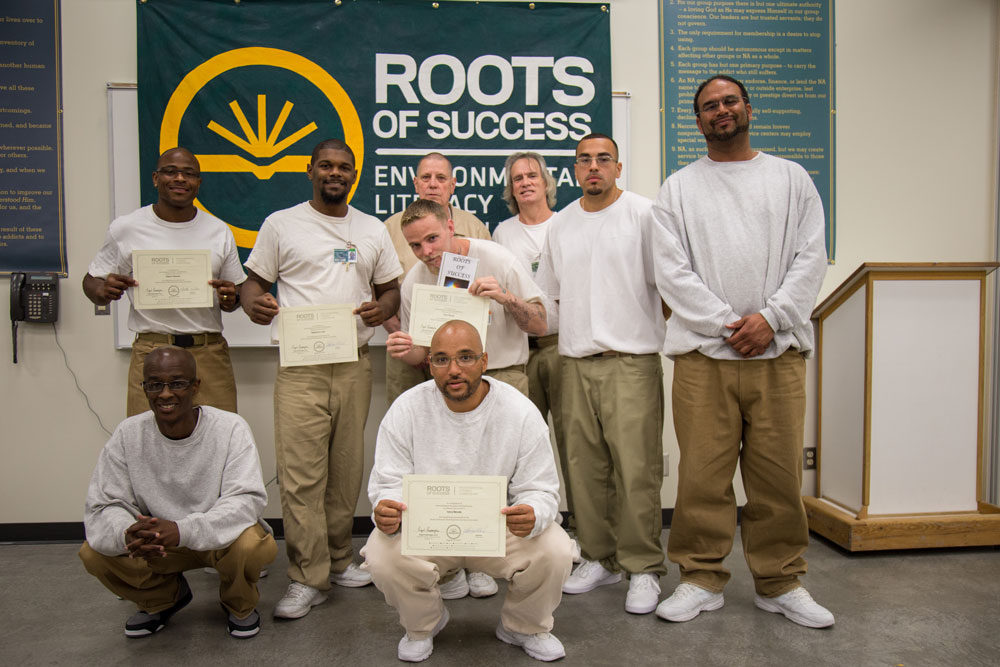Allied Organizations
These are organizations that inform and complement SPP’s work, and share in elements of our mission or approach. (SPP’s established partner organizations listed elsewhere).
Criminal Justice Organizations
Vera Institute of Justice: Research and innovation for justice systems.
Ella Baker Center for Human Rights: Founded by Van Jones to help kids avoid incarceration and find good jobs—including green jobs.
Segregation Solutions: a team of academics and practitioners who offer more humane alternatives to segregation and transform corrections management.
Civil Survival: Led by formerly-incarcerated individuals, Civil Survival’s mission is to change Washington State policy by educating a broader and more diverse voter base. They provide incarcerated and formerly incarcerated individuals with basic legal information, civic engagement, and life-skills education programs. Local Game Changer groups meet regularly in some areas.
Washington Appleseed (also in 15 other states) mobilizes volunteer attorneys and collaborates with community partners to level the playing field for Washington State’s vulnerable and marginalized populations; they offer projects and publications on a range of topics.
American Correctional Association (ACA): Founded in 1870 the oldest association developed specifically for practitioners in the correctional profession; a professional organization for all individuals and groups, both public and private, that share a common goal of improving the justice system.
The National Institute of Corrections (NIC, within the U.S. Department of Justice): Provides training, technical assistance, information services, and policy/program development assistance to federal, state, and local corrections agencies; awards funds to support our program initiatives; and provides leadership to influence correctional policies, practices, and operations nationwide in areas of emerging interest and concern to correctional executives and practitioners as well as public policymakers.
Environmental Justice Organizations
Got Green: a South Seattle-based organization led by people of color and low income people to organize for environmental, racial, and economic justice; we particularly recommend their 2016 report on climate justice: “Without active engagement with communities of color, the environmental movement as it stands will become irrelevant.”
Women of Color Speak Out!: a group of Seattle activists educating and informing people on the climate crisis.
Education Organizations
Transformative Education Behind Bars (TEBB) is a consortium of college and university educators and nonprofit organizations whose purpose is to develop and support higher education programs for prisoners.
The Freedom Education Project Puget Sound (FEPPS) is a nonprofit offering college courses inside the Washington Correction Center for Women. Their classes are taught by professors from nearby universities and colleges, and lead to an Associate of Arts and Science degree.
Education Justice Project (EJP) is a college-in-prison program that provides higher education to incarcerated students, and creates an academic community of incarcerated students, educators, formerly incarcerated individuals, family members of the incarcerated, and others who are committed to more just and humane world, achieved through education and critical awareness. EJP iswithin the College of Education the University of Illinois at Urbana-Champaign.
Prison University Project (PUP) provides higher education programs to people incarcerated at San Quentin State Prison in California.
University Behind Bars (UBB) was the first program to offer college instruction at Monroe Correctional Complex (MCC; northeast of Seattle, Washington) after the legislature prohibited public funding of prison college programs in 1995. UBB currently offers higher education programming to more than 220 prisoners.
Garden & Horticulture Organizations
The Horticultural Society of New York: Programs include the Rikers Island GreenHouse (a greenhouse, a classroom, and over two and a half acres of landscaped and productive gardens, designed and built by incarcerated individuals).
Insight Garden Program: IGP has provided a gardening program to incarcerated men at San Quentin State Prison for more than a decade, and is currently expanding to other California State prisons and nationally. Their curriculum integrates vocational and life skills to develop both “inner” and “outer” gardens.
Planting Justice: a grassroots
The Garden Project: They offer employment and training to formerly incarcerated individuals who grow organic vegetables and plant street trees in San Fransisco. The GP Earth Stewards job-training program is for lower income young adults and teens, who care and maintain natural areas owned and operated by the San Francisco Public Utilities Commission.
The New Garden Society: Since 2013, The New Garden Society trains more than 100 incarcerated students in the art and science of plants. They partner with the Massachusetts Departments of Correction and Youth Services, and work with students in prison gardens and greenhouses in the greater Boston area.
Re-entry Organizations
Washington State
Justice Involved Student Group at The Evergreen State College works collectively to build stronger campus communities in Washington State; advocates and supports those marginalized by an unjust, criminal justice system.
Formerly Incarcerate College Graduates Network promotes the education and empowerment of formerly incarcerated people through a collective community. If you’re a formerly incarcerated graduate of any college program and would like to join the network, please complete this membership application form.
Civil Survival: A non-profit providing incarcerated and formerly incarcerated individuals with basic legal information, civic engagement, and life-skills education programs. Their mission is to change policy by educating a broader and more diverse voter base.
Freedom Project: a volunteer-run non-profit that offers programs inside several WA prisons, and to recently released individuals. Since 2011, more than 320 volunteers have facilitated nonviolent communication, mindfulness, an equity classes to thousands of incarcerated individuals.
The IF Project: A collaboration of both formerly and currently incarcerated adults and law enforcement personnel working together to effect change for those who are facing issues and challenges regarding incarceration and recidivism.
Delancey Street Foundation: A residential self-help organization for former substance abusers, ex-convicts, homeless and others who have hit bottom; residents receive a high school equivalency degree (GED) and are trained in 3 different marketable skills.
Multi-State/National
Fair Shake Reentry Resource Center: The most reliable source of reentry resources we know.
National Coalition of Community-Based Correctional and Community Re-entry Service Organizations (NC4RSO): NC4RSO is developing a National Reentry Resource Listing, an online resource listing searchable by state and fully searchable by various criteria (location, type of service, etc.) and regularly updated; until that goes live, contact them for information.
Defy Ventures: entrepreneurship, employment, and character development training program for currently and formerly incarcerated men, women, and youth, serving primary hub cities of New York, San Francisco, Los Angeles, San Diego, and Omaha, NE.
Sustainable Operations Organizations
Green Prisons: Experts in sustainable operations in corrections facilities
Greening Corrections Technology Guidebook
Sustainability at the U.S. Environmental Protection Agency
Environmental Defense Fund Sustainability Handbook
Rocky Mountain Institute is an independent, entrepreneurial, non-profit think-and-do tank™ whose mission is to drive the efficient and restorative use of resources.
The U.S. Green Building Council is a non-profit community of leaders working to make green buildings available to everyone within a generation.
The Plastic Pollution Coalition is a global alliance of individuals, organizations and businesses working to stop plastic pollution and its toxic impacts; they also have a youtube channel.


